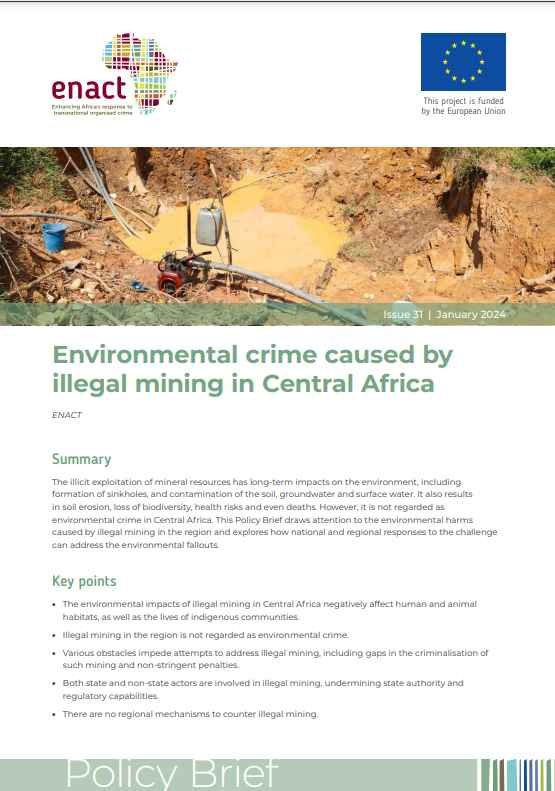By The United Nations Office on Drugs and Crime (UNODC)
Overall criminalization of activities that harm the environment
No single international legal instrument comprehensively protects the environment, criminalizes all behaviours that harm the environment, nor defines crimes that affect the environment. The legal protection of the environment is a complicated patchwork of international and regional agreements ratified and transposed to varying degrees into national legislative frameworks. Such complex and unharmonized regulations create a landscape where criminal and/or economic interests can take advantage of loopholes and gaps in legislation and its enforcement as well as a landscape conducive to criminal infiltration of legitimate sectors.
Today, many countries make use of the law and criminal penalties to protect the environment, although with some differences across environmental areas. In most countries in the world, prison sentences can be imposed for violating laws regulating deforestation and logging, mining, air pollution, noise pollution, soil pollution, water pollution, fishing, waste, and wildlife. A high rate of criminalization of harmful behaviours exists across these nine environmental areas. Wildlife and waste are the areas where most countries have at least one related criminal offence in their national legislation. Soil and noise pollution are the areas where the fewest countries have criminal provisions.
The level of protection afforded to the environment is related to the conditions of each country. For example, all the countries of Southern Africa regard fences related to air pollution, deforestation and logging, mining, waste and wildlife as criminal acts. In contrast, no countries among the small island states of Micronesia regard violations of deforestation and logging legislation as a crime, perhaps because
Activities that harm the environment considered as serious crime
At least 85% of United Nations Member States criminalize offences against wildlife and at least 45% punish some of these offences with four years or more in prison, which constitutes a serious crime under the UN Convention Against Transnational Organized Crime (UNTOC). For example, in Eastern Africa, 12 out of 18 countries regard wildlife offences as serious crimes, with the potential for long prison sentences, while illegal fishing is considered most grave in Oceania, where 43% of the countries regard it as a serious crime.
Waste offences are taken even more seriously, with almost half of the countries regarding these offences as serious crimes, including half the African countries (perhaps due to the Bamako Convention) and 62% of countries in Western Europe. Waste offences is also an area where the liability of legal persons (such as corporations) is recognized in over three-quarters of countries.
Africa and the Americas have the highest proportions of countries with criminal offences related to all nine environmental areas analysed, while Africa and Asia have the highest average percentage of Member States with penalties meeting the serious crime definition across the nine crimes (30 percent respectively). Where there are no criminal offences, countries typically use the administration of fences (see Figure 1).
The highest average percentage of Member States with penalties meeting the serious crime definition are in Africa and Asia, indicating not that legislation there may be ‘weak’, as is commonly stated, but that there is a lack of enforcement of the legislation. etc.
Vienna: UNODC, 2024. 41p.





